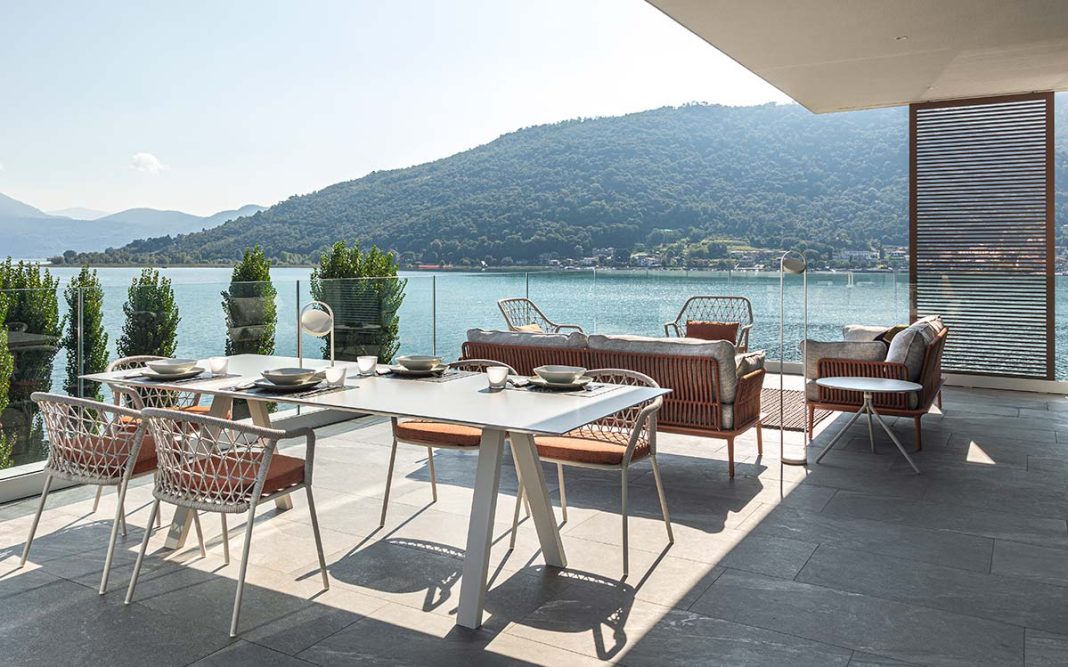The history of Pedrali has been linked since the outset to the world of outdoor living. Since the 1960s, when the founder Mario Pedrali made wrought iron furniture inside a small workshop that has been transformed over the years, becoming the company we know today, with over 20 collections in its portfolio for outdoor use.
Along with purely aesthetic research, always with an accent on minimal but functional, comfortable design, important innovations have been generated over time in terms of materials – ranging from steel to recycled plastics, woven cord to polypropylene and water-repellent padding – enabling products to exist in the open air while conserving their remarkable quality.
Relying on this long tradition of know-how, the company has expanded into multiple solutions that respond to a wide range of outdoor contexts, situations of socializing or relaxation, organized in natural settings. Terraces, verandas and gardens of homes, but also cafes, restaurants or workspaces can be enlivened with the brilliant design of Pedrali.
Moments of welcome lightness – in terms of atmosphere and style – produced with the Nolita seating, based on the creativity of the studio CMP Design, which in this collection pays tribute to the origins of the company, including its first metal garden chairs. The collection is made entirely in steel tubing, to trigger a clear, extremely light graphic image.
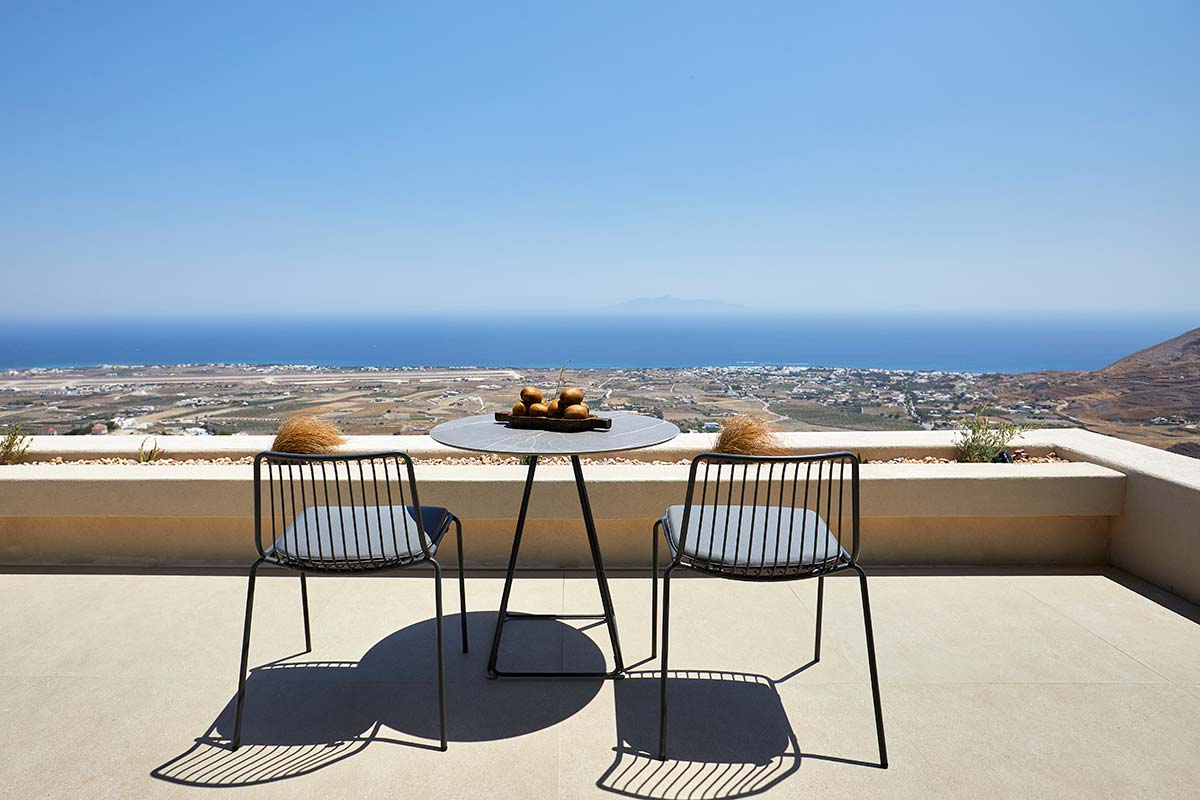
Nolita by Pedrali, Design CMP Design – North Santorini – A Luxury Spa Hotel, Santorini, Greece
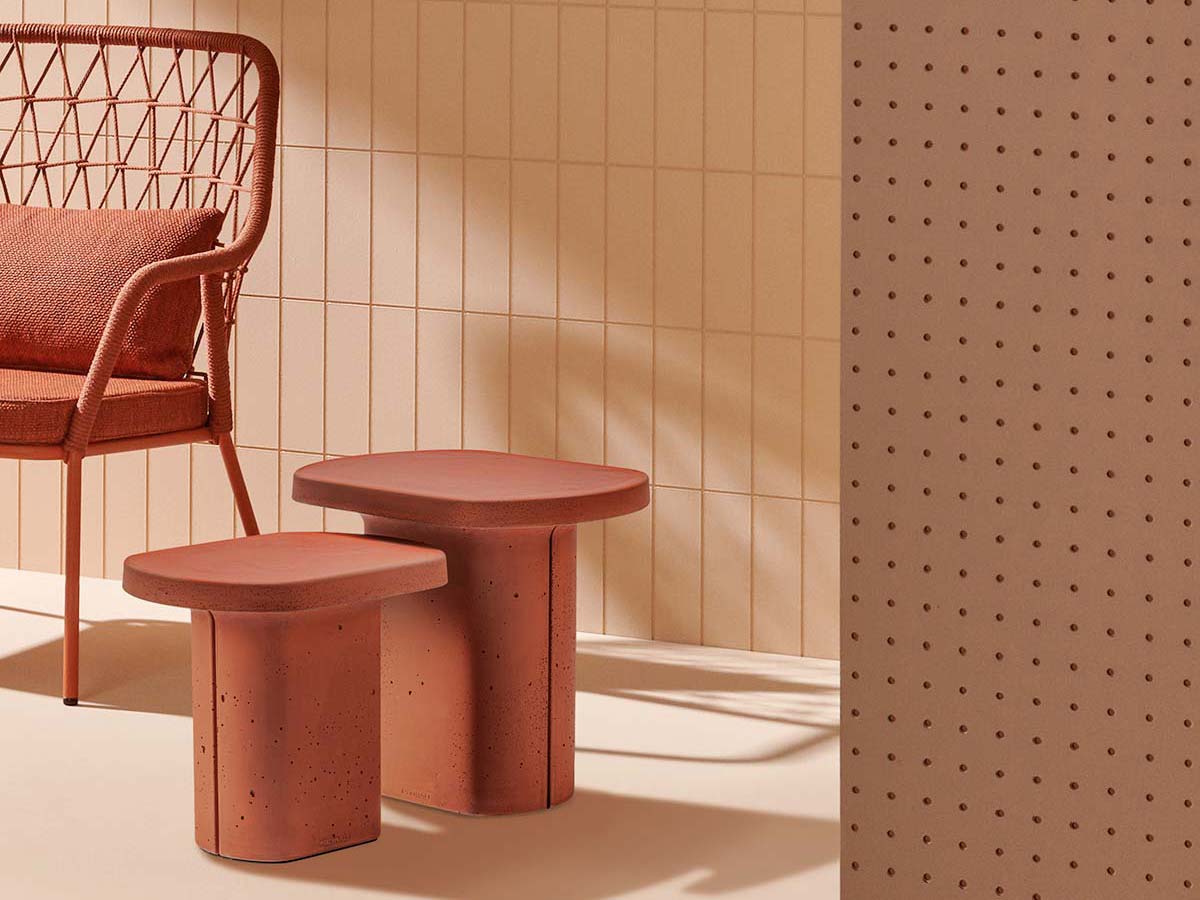
Caementum by Pedrali, Design Marco Merendi & Diego Vencato
The same characteristics can be seen in the tables of the same name, in tandem with the solid durability of the Caementum coffee table designed by Marco Merendi and Diego Vencato: a single block of cement whose sculptural image conceals great formal simplicity and great versatility of use.
The relaxing, escapist atmosphere suggested by outdoor living is accentuated by the Panarea and Reva collections. Two offerings with different design, but sharing a remarkable softness (of materials, volumes, image) that is perfect for lounge areas. The Panarea chairs created by CMP Design make use of handicraft weaving (100% Made in Italy) for a structure that is warm to the touch and comfortable in use; the woven polypropylene cord generates an intriguing texture on the back.
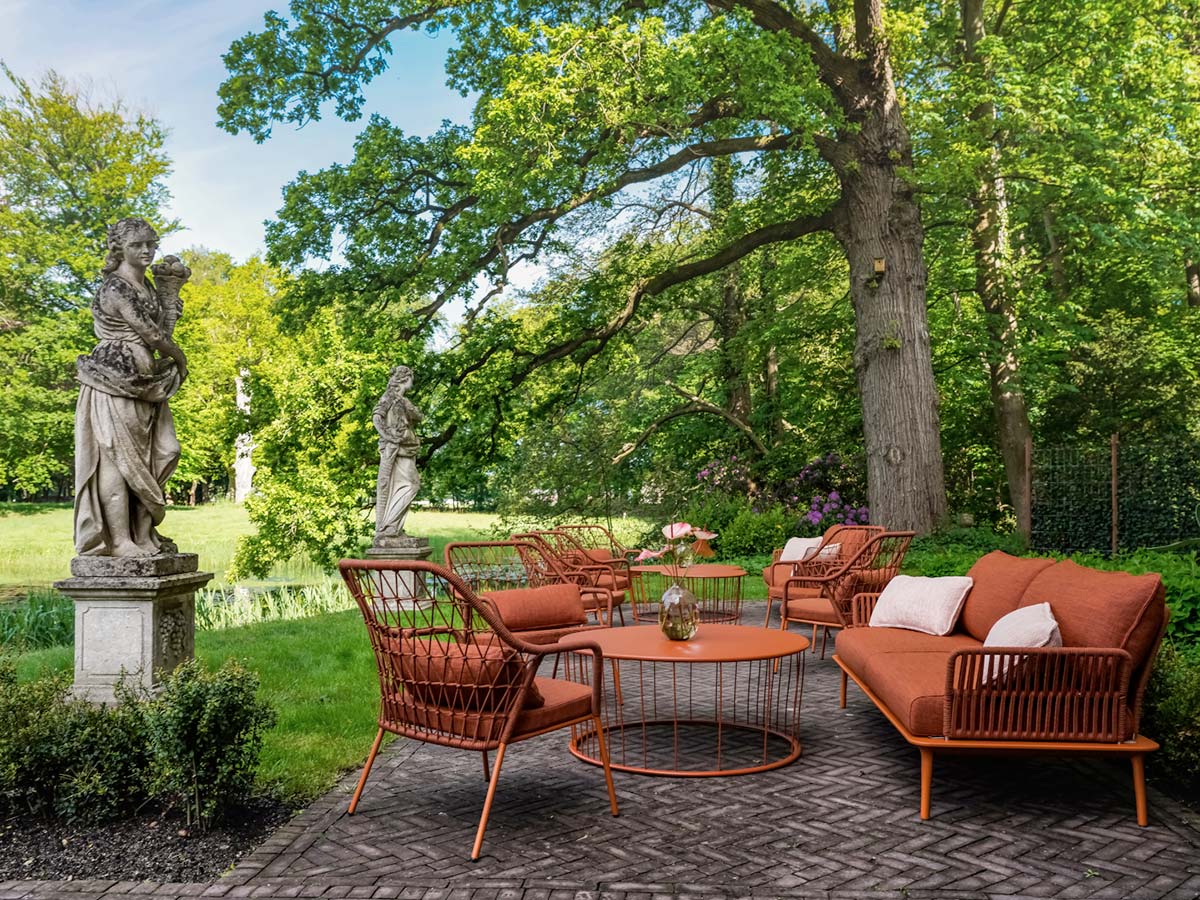
Panarea by Pedrali, Design CMP Design & Reva Twist by Pedrali, Design Patrick Jouin
Terrazza del ristorante Voltaire, Parc Broekhuizen, Leersum, Holland
Project by Judith van Mourik – Photo © Marius B (Roel Brouwer)
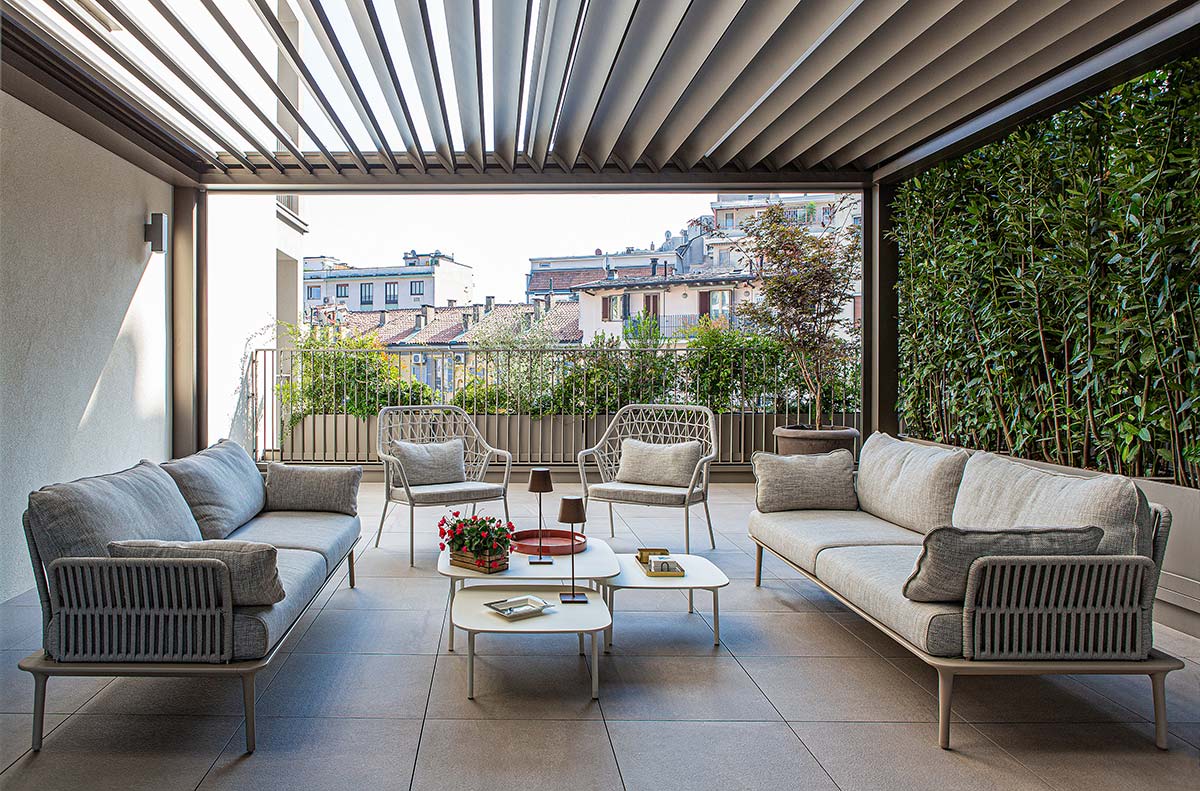
Panarea by Pedrali, Design CMP Design & Reva Twist by Pedrali, Design Patrick Jouin
Private House Terrace, Milan – Photo © Ferdinando Gatta
Soft lines and ample proportions are the earmarks of Reva, the seating and cot line designed by Patrick Jouin. Here the distinctive feature is the structure in rounded aluminium, protruding at the base, slightly curved in the armrests and the back (both covered in flat polypropylene cord in the Reva Twist version).
No ideal of outdoor pleasure can help but including a specifically convivial zone for lunches or coffee, moments of lingering around a table, to indulge in the pleasure of spending time with others in a natural dimension. This is the purpose (though not the only one) of the Tribeca collection, for example, with its image that evokes classic terrace seating of the 1960s, reinterpreted by CMP Design thanks to new materials: a solid tubular frame combined with the elasticity of a profile in vertically woven plastic material.
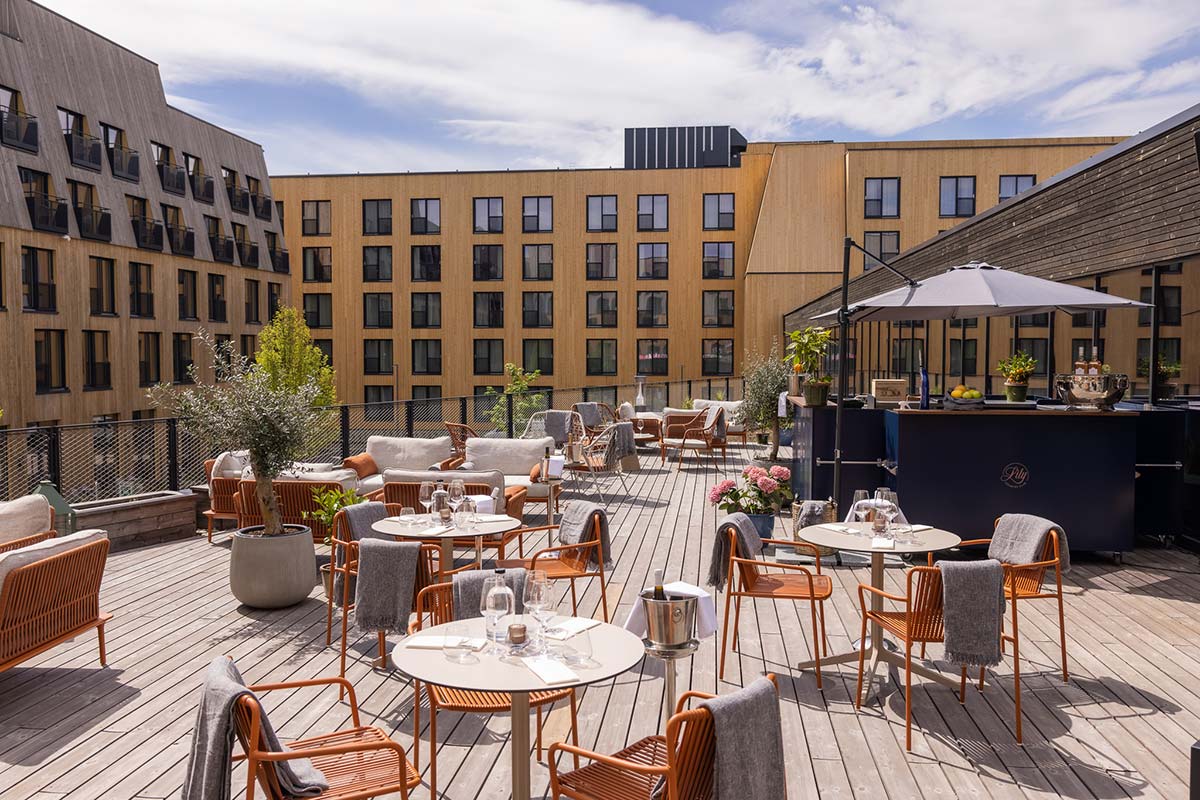
Tribeca by Pedrali, Design CMP Design – Lily Country Club, Kløfta, Norway
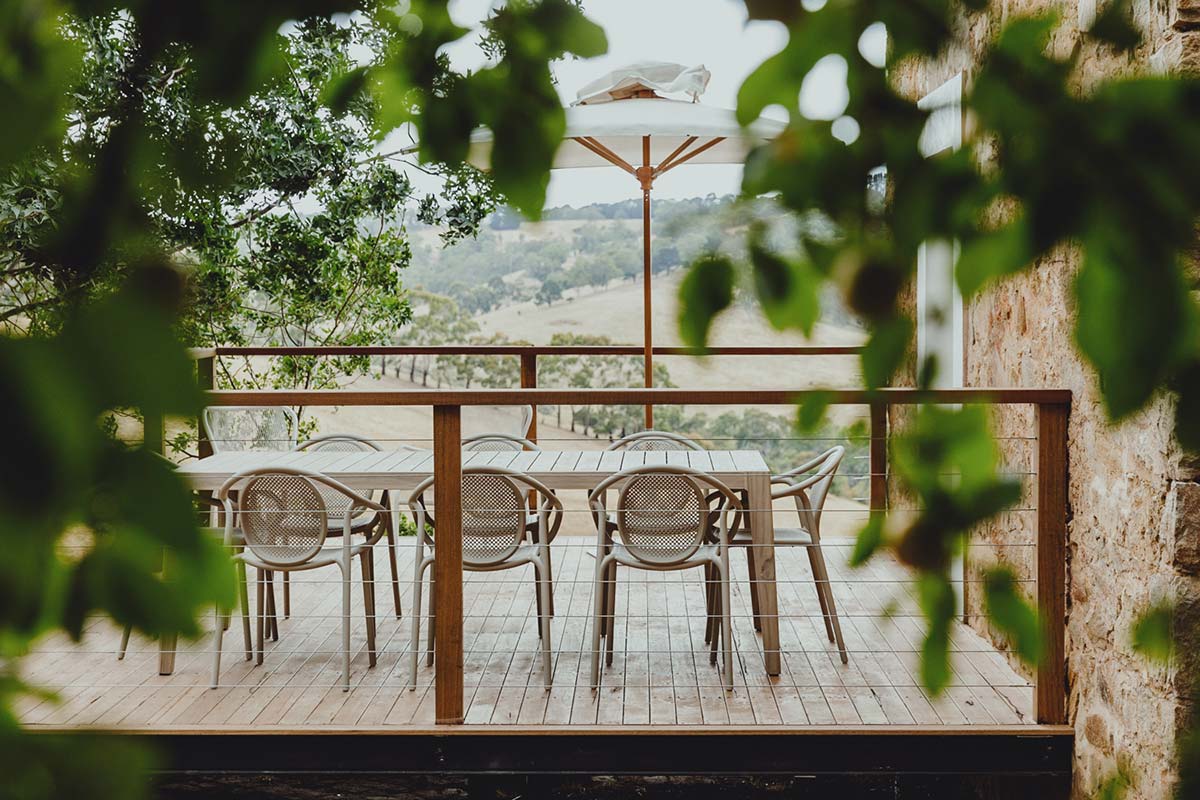
Remind by Pedrali, Design Eugeni Quitllet
The Coach House, Adelaide, Australia – Photo © Jvdkphoto
Reaching back into memory, there is also the Remind collection by Eugeni Quitllet: the designer has taken his cue from the curves of the wooden chairs of the second half of the 19th century, shifted into a single block of polypropylene, lightened by the breathing texture of the seat and back. This collection also comes in recycled material: 50% post-consumer plastic, and 50% industrial plastic scrap. For design that establishes a dialogue with and in nature.

